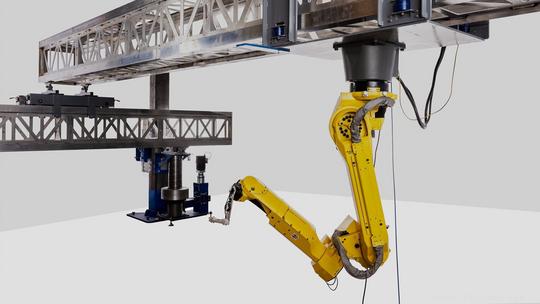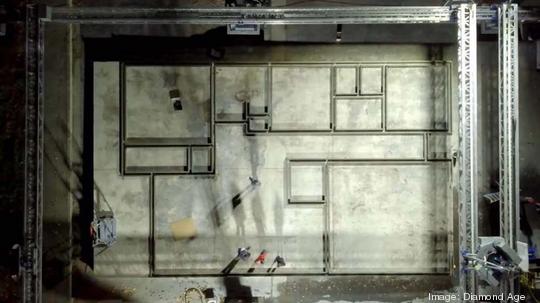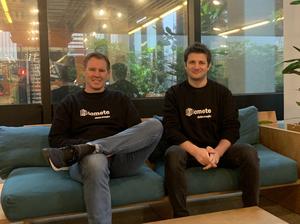
Diamond Age, a home construction startup that uses 3D printing technology, intends to construct its first batch of houses in Arizona later this year.
The company, which was founded in California but recently shifted its headquarters to Arizona, on Thursday said it had raised $50 million in series A financing to help it complete its first construction contract.
Diamond Age is a vertically integrated general contractor, but it swaps some materials and labor sources from the traditional mix. The company uses an automated robotic arm to print concrete walls, plaster interiors and more, while supplementing that work with good-old-fashioned human labor from skilled tradespeople.
Diamond Age is already under contract with a national homebuilder to construct 20 houses in metro Phoenix this year and 52 more next year, though the company would not share the name of the builder.
Jack Oslan, co-founder and CEO of Diamond Age, previously built other startups in California and he said starting this venture required motivation.
“What I know about startups is that they are hard and you shouldn't make this decision lightly,” he said. “So I actually had to get pissed off in order to muster the energy to want to tackle this.”
That anger sprung from a conversation that Oslan had with his son in 2017, who said he was going to leave northern California because it was too expensive to buy a house there. The possibility of his son’s relocation inspired Oslan to dig into the affordable housing crisis.
“We want to get the next generation into their homes faster,” he said. “The people who have been pushed back from their first home purchase, they're jamming up the top end [of the rental market] and that cascading problem goes all the way to the bottom, to folks who are on the fringe, right? People who just had enough money to be able to afford poor rental property, those people are homeless now.”

The housing shortage, both in Arizona and nationally, has been well-documented; Arizona legislators now plan on studying a bill aimed at combating the crisis.
The Diamond Age construction technique cuts down material costs and saves on human labor, which ultimately means homes can be built quicker. The company built a 1,700 square-foot demo home including three bedrooms, two baths and two car garage in 11 months, which led it to the home construction contract it has now.

Oslan co-founded the company with Russel Varone, the chief technology officer and “technical genius,” by Oslan’s account. The pair formed the company in February 2018 and worked on its technology until August 2020 before raising its first institutional capital that December. Diamond Age also raised $8 million in seed financing last August.
Doubled headcount
Oslan said their intention was never to keep the company in California and they decided to come to Phoenix, in part, because of the boom in homebuilding.
“Arizona is one of the hotbeds for production housing right now,” he said. “Every major homebuilder in this country is building in Arizona. So there's an incredible amount of housing units available to us and that's what any startup needs is a lot of reps early on.”
The company had 20 employees at the end of last year and it’s already bumped its headcount up to 40. Most of the employees living in California have decamped to the Valley and Oslan said they’ve leased an industrial space at 4909 E. Beverly Road in Phoenix.
The series A funding was led by Jackson, Wyoming-based Prime Movers Lab, with participation from seed investors Alpaca VC, Dolby Family Ventures, Timber Grove Ventures, and Gaingels, plus new investor Signia Venture Partners. Additionally, 20% of the round was made up of production homebuilders and land developers.










